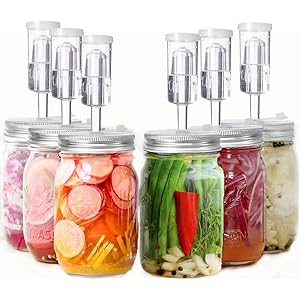What Does Carbonation Mean?
Carbonation refers to the process of dissolving carbon dioxide gas in a liquid, which creates bubbles and gives beverages a fizzy texture. This phenomenon is commonly observed in soft drinks, sparkling water, and various alcoholic beverages. The presence of carbon dioxide not only enhances the sensory experience but also contributes to the preservation of the drink by creating an acidic environment that inhibits the growth of certain microorganisms.
The Science Behind Carbonation
The process of carbonation involves the interaction of carbon dioxide with water, resulting in the formation of carbonic acid. This weak acid is responsible for the tangy taste often associated with carbonated beverages. When the pressure is released, such as when a bottle or can is opened, the carbon dioxide escapes, leading to the characteristic fizz and bubbles that consumers enjoy. Understanding the chemistry behind carbonation can help beverage manufacturers optimize their products for taste and shelf life.
Types of Carbonated Beverages
There are several types of carbonated beverages, each with unique characteristics. Soft drinks, for example, are sweetened and flavored carbonated drinks that often contain caffeine. Sparkling water, on the other hand, is simply water that has been carbonated, either naturally or artificially, and is often consumed as a healthier alternative to sugary sodas. Additionally, alcoholic beverages like champagne and beer are also carbonated, contributing to their effervescence and mouthfeel.
Health Implications of Carbonation
While carbonation can enhance the enjoyment of beverages, it is essential to consider its health implications. Some studies suggest that carbonated drinks, particularly those high in sugar, can contribute to weight gain and dental issues. However, carbonated water is generally considered a healthier option, as it contains no calories or sugars. Understanding the balance between enjoyment and health is crucial for consumers when choosing carbonated products.
Carbonation in Home Brewing
For those interested in home brewing, carbonation plays a vital role in the final product. Home brewers often use priming sugar to carbonate their beers naturally. This process involves adding a small amount of sugar to the beer before bottling, allowing yeast to ferment the sugar and produce carbon dioxide within the sealed bottle. This method not only carbonates the beer but also enhances its flavor profile, making it a popular technique among enthusiasts.
Get more content like this!
Sign up to receive updates and new terms first hand.
Carbonation and Flavor Perception
The level of carbonation in a beverage can significantly influence flavor perception. Higher carbonation levels can enhance the perception of acidity, making drinks taste crisper and more refreshing. Conversely, lower carbonation levels may result in a smoother mouthfeel. Beverage manufacturers often experiment with carbonation levels to achieve the desired taste experience, demonstrating the importance of carbonation in product development.
Environmental Impact of Carbonation
The carbonation process can also have environmental implications, particularly concerning the production and disposal of carbonated beverages. The production of carbon dioxide, whether through fermentation or industrial processes, contributes to greenhouse gas emissions. Additionally, the packaging of carbonated drinks often involves plastic and aluminum, raising concerns about waste and recycling. Consumers and manufacturers alike are increasingly seeking sustainable practices to mitigate these impacts.
Carbonation in Culinary Applications
Beyond beverages, carbonation has found its way into culinary applications. Chefs and mixologists utilize carbonation to create unique textures and flavors in dishes and cocktails. Techniques such as carbonating fruits or infusing syrups with carbon dioxide can elevate the dining experience, showcasing the versatility of carbonation in the culinary world. This innovative use of carbonation highlights its potential beyond traditional beverage applications.
Future Trends in Carbonation
As consumer preferences evolve, the future of carbonation in the beverage industry is likely to change as well. Trends such as low-sugar and health-focused carbonated drinks are gaining popularity, prompting manufacturers to explore new formulations. Additionally, advancements in carbonation technology may lead to more efficient and sustainable production methods. Keeping an eye on these trends can provide insights into the future landscape of carbonated beverages.




